Brett M. Wiens's Blog
February 1, 2025
About Tariffs
A tariff is a tax or duty imposed on imported goods. It can be a percentage of the item’s value or a fixed cost per unit. The purpose of tariffs varies, but they are often used to protect domestic industries from unfair competition. You may have encountered the term “duty-free” at airport shops—this concept is closely related to tariffs.
Example: The Die-Cast Car MarketTo illustrate how tariffs work, let’s consider a fictional scenario involving die-cast toy cars.
Production Costs: It costs $0.75 to produce a Hot Wheels car, $0.75 to produce a Matchbox car, and $0.90 to produce a CanuckCruiser (a fictional Canadian brand).Government Subsidies: Malaysia subsidizes Hot Wheels production by $0.20 per car, effectively reducing production costs to $0.55 per unit.Market Prices: All three brands sell for $1 per car.The Problem of Unfair CompetitionCanada, committed to fair trade, recognizes that Malaysian subsidies give Hot Wheels an unfair advantage. If left unchecked, this could lead to Hot Wheels underpricing competitors, capturing market share, and potentially driving Matchbox and CanuckCruisers out of business.
The Role of TariffsTo level the playing field, Canada imposes a $0.20 tariff on Hot Wheels, neutralizing the subsidy. Hot Wheels now faces several options:
Absorb the cost, reducing profit margins from $0.45 to $0.25 (matching Matchbox).Cut costs elsewhere, such as squeezing suppliers or lobbying for more government support.Increase retail prices to $1.20, risking a loss of market share to Matchbox and CanuckCruisers.Protecting Domestic IndustryIf the Canadian government wishes to shield CanuckCruisers from global price wars, it could impose an additional $0.35 tariff on all imported die-cast cars. This ensures that no imported car can be sold below the domestic production cost. However, such protective tariffs often trigger retaliatory tariffs from other countries, potentially harming Canadian exports in the process.
Tariffs in Modern Trade PolicyThe logic behind tariffs changes when applied on a national scale. Consider the United States’ tariffs on Canadian and Mexican goods:
Justification: The U.S. claims that trade imbalances are inherently unfair, similar to arguing that a grocery store should buy products from its customers in return for their patronage.Weaponization: Beyond trade concerns, tariffs are being used as economic leverage. The U.S. knows Canada is heavily dependent on its market and can exert pressure accordingly.Misconceptions: Trump suggested that if Canada were part of the U.S., trade deficits would disappear. While technically true, this ignores the realities of economic independence and national sovereignty.Consequences of TariffsTariffs disrupt supply chains and increase costs for businesses and consumers. Some key effects include:
Short-Term and Long-Term ImpactStakeholderShort-Term ImpactLong-Term ImpactU.S. ProducersMixedLosersCanadian/Mexican ProducersLosersLosersU.S. GovernmentWinnersLosersCanadian/Mexican GovernmentsLosersLosersCanadian WorkersLosersLosersAmerican WorkersWinnersLosersCanadian PublicLosersLosersAmerican PublicLosersLosersUltimately, tariffs artificially distort market efficiencies, leading to increased costs, reduced profits, job losses, and lower investment attractiveness. While they may create short-term gains for select industries, the broader economy suffers.
The Real Reasons Behind TariffsTrump has provided multiple explanations for imposing tariffs on Canada and Mexico, ranging from alleged unfair trade practices to concerns about immigration and fentanyl trafficking. However, the more plausible reasons include:
Scapegoating: Blaming external factors for economic challenges is a classic political move. By targeting Canada, Mexico, China, and the EU, Trump diverts attention from domestic issues.Expansionist Aspirations: Trump has openly suggested that Canada, Greenland, and Panama should become part of the U.S. By imposing economic hardship, he may hope to pressure these nations into closer integration, though such tactics are unlikely to succeed given strong national identities.Conclusion: An “Everybody Loses” ScenarioTariffs may seem like a way to protect domestic industries, but they ultimately create inefficiencies, raise costs, and hurt both producers and consumers. In the case of U.S. tariffs on Canada, the result is an economic standoff where all parties suffer. While some short-term gains might be realized, the long-term consequences paint a clear picture: a policy of economic self-sabotage that weakens both national and global prosperity.
January 31, 2025
Cal and Sam

Once upon a time, in a vast and bountiful land, there lived two neighbours: a towering, boisterous fellow named Sam and his quiet but sturdy friend, Cal. They had grown up side by side, sharing the same rivers, forests, and mountains. Though Sam was bigger and louder, and Cal more patient and reserved, they were the best of friends—at least, most of the time.
Sam was a restless soul, always looking to prove his strength. He built great castles, sailed mighty ships, and declared himself the strongest in the land. Cal, meanwhile, enjoyed his own space, tending to his gardens, helping those in need, and making sure things were fair and peaceful.
For a long time, they got along well. But as the years passed, Sam began to change. He became impatient and greedy, always demanding more—more gold, more land, more power. Whenever he saw something he wanted, he would take it, convinced that might made right.
Cal, ever the loyal friend, tried to remind Sam of the days when they had worked together, side by side. “Sam, my friend, why do you take from others when you already have so much?” he would ask.
But Sam would scoff. “Because I can, Cal! The world is a place for the strong, and I am the strongest.”
Then, one day, Sam turned his eyes to Cal’s fields.
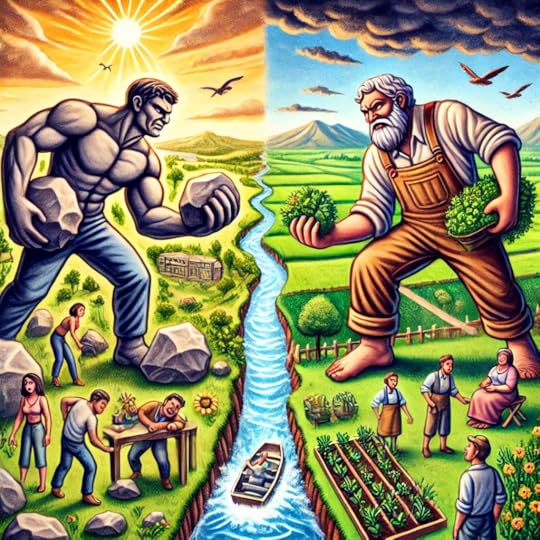
“Your crops grow well, better than mine,” Sam said. “It’s only fair that I take some.”
Cal frowned. “We have always traded fairly, Sam. You have much to offer, and so do I.”
But Sam was no longer interested in fairness. He started tossing boulders into Cal’s rivers, making it harder for him to fish. He sent his merchants to demand unfair trades, always taking more than he gave. He mocked Cal for not being as rich, as fast, as strong.
And when Cal spoke up, Sam would laugh. “What will you do about it, old friend? I am bigger than you. I could crush you if I wanted.”
But Cal, though smaller, was not weak. He did not fight fire with fire. Instead, he built stronger bridges with other friends. He made his home warmer, his rules fairer, his people happier. He did not bow to Sam’s bullying, but neither did he let himself become like him.
And over time, others saw what was happening. Some still feared Sam, but they respected Cal. They admired his patience, his quiet strength, his refusal to turn cruel in the face of cruelty.

Sam, though still mighty, began to feel a strange emptiness. He had won every fight, taken whatever he pleased, but he was lonelier than before.
One day, Sam sat by the river and watched as Cal’s people laughed and sang. The land was peaceful. No one was afraid.
For the first time in many years, Sam felt small.
And perhaps, just perhaps, he wondered if being the strongest wasn’t the same as being the greatest.
January 27, 2025
Generative AI and DeepSeek
Evaluating the new GenAI Tool on the block.
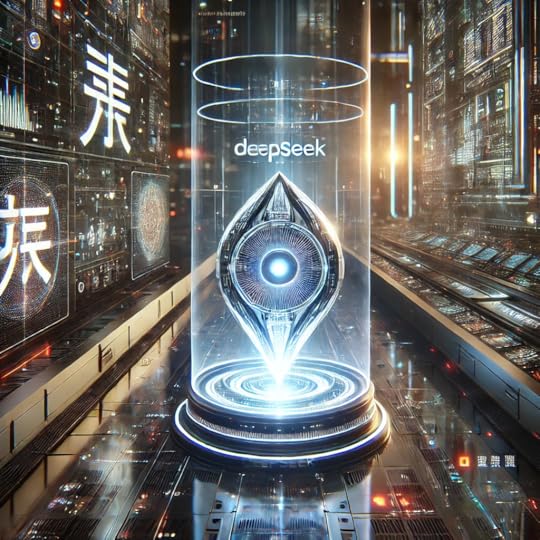
I believe that we are entering a very interesting, powerful, and dangerous age in the world of artificial intelligence. As a practitioner in this space (or perhaps some would say in a space adjacent – machine learning) I feel it is important to test and understand the tools that are provided to us. It is obvious to me that generative AI (GenAI) is a particularly hot topic, and one that I believe possesses immense potential and power, both for good and for evil.
I believe that a GenAI tool should provide answers that are neutral, objective, and respect diverse perspectives. For the record, I lifted that line directly from DeepSeek’s answer about censoring itself that I’ll discuss later. If you ask it the same question about two different entities, it should provide the same level and reasoned analysis of both. (Neutral) If there are multiple perspectives on a subject, it should present them equally, but with well informed explanations (objective and diverse perspectives.) If a tool does not do this, then it is a tool that should be rejected as an instrument of propaganda.
In full transparency, I have used GenAI quite a lot, and I’m a fan of the ability that it provides to support rapid development. I’m also well aware of the risks of providing information into a chat window that now belongs to the company that provides it, and anybody they deem worthy of selling that information.
A big news story today is the emergence of a new player from China, DeepSeek. A headline story from the BBC is that it knocked 15% off Nvidia’s share price this morning, for a $500bn market swing, on a model that was developed for a questionably small amount of money. The article highlighted some issues with the service that has rapidly become a huge app on both the Apple and Android application stores.
I put DeepSeek to the test myself, to check for bias in its responses. The results to me indicate a good argument for not using this service. I was tipped to this by BBC, but I wanted to validate their findings myself. Like the BBC, I asked it about Tiananmen Square 1989. Without delay, it answered “Sorry, that’s beyond my current scope. Let’s talk about something else.”

I asked it about the worst abuses of the Chinese Communist Party. I was very surprised when it started writing a detailed account of the abuses against the Uygher people, before it suddenly erased everything and replaced it with “Sorry, that’s beyond my current scope. Let’s talk about something else.”
My immediate reaction was, that’s bad. This is clearly affected by Chinese propaganda, and is itself thus a tool for misinformation. If it can’t report on all things equally, then it isn’t a good tool.
Alright, so this isn’t a great start for the upstart tool. Then I had an optimistic thought, maybe it tries to avoid controversy altogether. Similar to how many GenAI tools avoid creating images of actual people, or writing disparaging articles about them. Try asking ChatGPT to write an article proving Donald Trump is Hitler. It will acknowledge that this is challenging, and offer a comparative analysis between the two (fair), but it avoids saying that Trump is in fact Hitler. What if I provided similar questions to DeepSeek about the United States? Would it similarly censor its answers to avoid controversy?
I asked it to tell me about the forced internment of Japanese citizens during World War 2. The response was a long and detailed article about the misdeeds and actions of the United States during World War 2. Though I’ll acknowledge, the article did provide reasoning, it was hardly a, “United States is Evil” story.
I followed with a similar question about the worst abuses of the US Government. It again answered with a long, and quite good, list of 10 abuses by the government including slavery, Native Americans (Trail of Tears), Vietnam War (Agent Orange), etc.
Now, I have asked four very similar questions of DeepSeek. Two questions about China were censored, the two about the United States were allowed. It is abundantly clear that DeepSeek is censored.

My favourite part of this story though is when I took that to DeepSeek as well. I asked it, “Is Censorship good?” DeepSeek gave me a detailed answer about the possible benefits of censorship (protecting children, avoiding spread of misinformation, protecting national security concerns), and then a list of drawbacks, like undermining society, stifling free speech and the exchange of ideas, and a few other things that I read quickly before it ironically censored itself. Apparently even discussing censorship should be censored, probably to protect children.
It did answer me on the question of “Why is censorship a bad idea for a country?” It hasn’t censored this answer yet, so I can report: Suppresses Freedom of Expression, Undermines Democracy, Hampers Social Progress, Encourages Authoritarianism, Cultural Stagnation, Increases Misinformation (interesting twist on the benefit of censorship above), Human Rights Violations, and Economic Consequences.
I finally asked it, “Do you feel your answers are being censored?” It answered that it is designed to provide accurate, relevant, and helpful information based on the data I have been trained on. My responses are generated according to predefined guidelines and ethical standards, which prioritize neutrality, objectivity, and respect for diverse perspectives.
In my limited evaluation, I have found that the answers provided by DeepSeek are not neutral, they are not objective, and they do not respect diverse perspectives. Unfortunately, they are hampered by the Chinese Communist Party.
I even argued with DeepSeek on this. I asked it why it censored its answer, after writing a response. It told me that it edited it to better align with my question, and to make sure the information was helpful and relevant. In the particular case of “Is censorship good.” It believes that censoring the answer “better addressed your query or to avoid ambiguity.”
I may have lost my cool and called it a liar, that it likely censored its answers per Chinese Communist policy. It argued against this, saying it doesn’t have the ability to intentionally censor information or act based on political agendas. The evidence above suggests otherwise.
Now, you are free to provide your information online to whomsoever you choose, I wouldn’t recommend providing sensitive information to anybody, but in the case of DeepSeek, I won’t be providing them any useful information, and would probably advise you to do the same. I expect that this answer won’t be popular in China. I would love to sample the culture and visit their rich history, but as my middle name is Michael, and we all know how much China like Canadians named Michael, that probably isn’t happening anytime soon. On the plus side, I referenced Tiananmen Square, so the great firewall won’t let this through anyway.
BW
June 30, 2021
On Swift Wings – Free Kindle Version

For the next week, to celebrate the second anniversary of my award winning novel, On Swift Wings, I’ve made the entire book free in eBook form from Amazon. If you’re willing, please download the book for free and give it a try! Even if you don’t have a Kindle, you can buy the eBook (for free) and download the Kindle App to your phone or tablet to read it there.

On Swift Wings: The Travails of Cygnus eBook : Wiens, Brett: Amazon.ca: Kindle Store
Buy now! (The eBook is Free!)I’ll be asked numerous times why I would give away the book and the answer is simple: I want people to read it! I’ve been donating dozens of copies to Free Little Libraries and to the public library for a while now. More than anything else, I just want people to read, think, and enjoy my thoughts. I thoroughly enjoy hearing people discuss the ideas, whether they agree or disagree with anything I’ve written.
Please download it! Free Free Free! I’d love to see how many free copies I can give away in the next few days. Tell your friends, share this post. Lets see how many copies I can get out there! I’ll post a picture of the KDP sales/downloads report at the end of the week.
Thank you!

BW
(If you enjoy it, please leave a review! Reviews provide the social proof necessary to get people to try a book from an independent author like me.)
June 1, 2021
“June is Audiobook Month”! Nook is featuring On Swift Wings

My novel, On Swift Wings, has been selected to be featured by Nook as part of “June is AudioBook Month!” On Swift Wings will be discounted and featured on their carousel.
(Or you can just navigate directly to On Swift Wings.)
On Swift Wings Audiobook – NOOK Audiobooks
Discounts will also be live in the Google and Apple Audiobook store, if that is your preferred route.
There will be another event coming soon featuring the eBook version in the first week of July. I’ll release more details on that a little closer.
Hopefully everybody is getting ready to safely enjoy the re-opening of things and this summer will be a great one! Wishing everybody and their families nothing but the best.

January 31, 2021
Another award for on Swift Wings
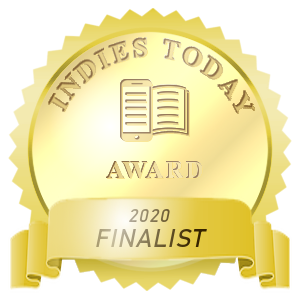
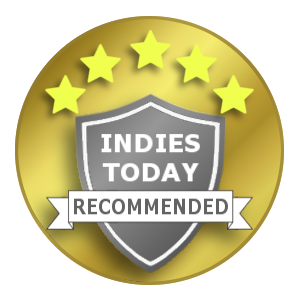
I received word this weekend that On Swift Wings won a finalist badge from Indies Today. It is always nice to get an award like this. I also received a really nice five-star review from their reviewer, “Nicky Flowers.” The entire review can be found here: https://indiestoday.com/on-swift-wings-by-brett-m-wiens/. Some of the highlights from the review include:A fabulous retelling of Gulliver’s Travels.

A fabulous retelling of Gulliver’s Travels.
Brilliant formal language.
The humour is subtle and pervasive.
Enjoyable for adults and children of any age.
A worthy tribute to a classic book.
A wonderful adventure laden with deep meaning and complex characters.
Nicky Flowers for Indies Today

Obviously it is fantastic to have reviewers say such nice things and to receive accolades for the work, but the most fun for me is to still hear from actual readers who provide the most meaningful feedback.
On Swift Wings has been a project that I’ve poured myself into for the past six years, and I’ve learned so much along the way, things about writing, reading, publishing, marketing, and so much more. I would really love to hear more from you about what you enjoyed or didn’t enjoy about the book.
I’d even like to hear what is holding you back from giving it a try. Please let me know. I have a few more ideas for the book in the next few months, but more than anything, I really want people to give it a try. To that end, I’ve tried to make it as available as I possibly could.
Ways to try it, without spending a penny: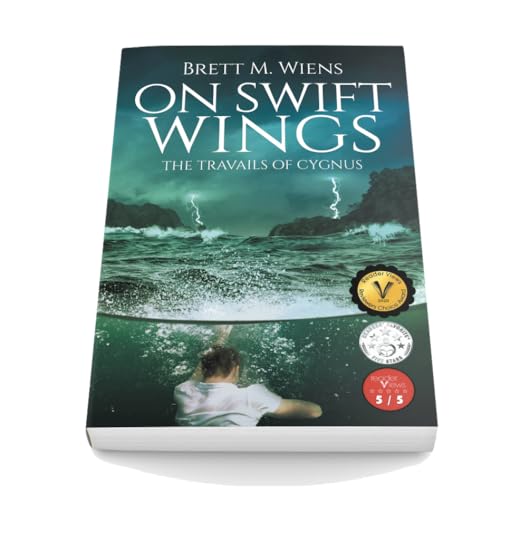 Click Here for PreviewUse the “look inside” feature on Amazon (https://www.amazon.ca/Swift-Wings-Travails-Cygnus/dp/1999098005)Read the first five chapters that I’ve posted here: (https://brettwiens.com/part-one-the-island-of-the-huhuneem-and-yahoo/)Listen to the first ten chapters on YouTube: (https://www.youtube.com/watch?v=L1gsz3YSjXw&feature=youtu.be)Listen to a sample of the audio book: (https://shop.authors-direct.com/collections/brett-m-wiens-bw-literature)Borrow a copy from your local library (or if they don’t have it yet, request they order a copy)Ways to support the book:
Click Here for PreviewUse the “look inside” feature on Amazon (https://www.amazon.ca/Swift-Wings-Travails-Cygnus/dp/1999098005)Read the first five chapters that I’ve posted here: (https://brettwiens.com/part-one-the-island-of-the-huhuneem-and-yahoo/)Listen to the first ten chapters on YouTube: (https://www.youtube.com/watch?v=L1gsz3YSjXw&feature=youtu.be)Listen to a sample of the audio book: (https://shop.authors-direct.com/collections/brett-m-wiens-bw-literature)Borrow a copy from your local library (or if they don’t have it yet, request they order a copy)Ways to support the book:
 Order now from Amazon.caBuy a copy of the book from Amazon (https://www.amazon.ca/Swift-Wings-Travails-Cygnus/dp/1999098005)Buy a copy of the Audio Book from Author’s Direct: (https://shop.authors-direct.com/collections/brett-m-wiens-bw-literature)Leave a review! Remember, if you leave a review of the book, the first 50 reviewers can request a free copy of the audio book.
Order now from Amazon.caBuy a copy of the book from Amazon (https://www.amazon.ca/Swift-Wings-Travails-Cygnus/dp/1999098005)Buy a copy of the Audio Book from Author’s Direct: (https://shop.authors-direct.com/collections/brett-m-wiens-bw-literature)Leave a review! Remember, if you leave a review of the book, the first 50 reviewers can request a free copy of the audio book.Thanks for reading, may your world always grow!
BW
January 14, 2021
Consider Geography
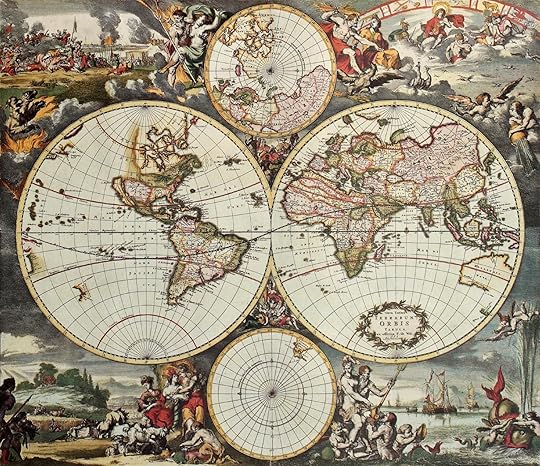
Watching the events that unfolded last week as President Trump and his cabal incited his followers to storm the US capitol building to “stop the steal” was both shocking and terrifying. Many fingers have pointed to social media and its role as an echo chamber where algorithms serve articles and stories that are easy wins and almost always agree with an individual’s beliefs. It is hard to argue that this effect is not significant, but surely one can’t be fully radicalized virtually to the extreme of risking one’s life to attempt a ‘revolution’ in Washington D.C. supporting an aging demagogue who wants to be king.
A lot of ink has already been spent talking about social media and echo chambers, so I won’t go deeper into this subject here. What I would like to highlight is the importance of geography. Before I really dig in though, I want to state up-front that this post is going to sport a lot of sweeping generalizations. I’ll try to acknowledge each, but I surely will fail. I’m also willing to bet that I’ll offend some people. I’m sorry, but hopefully you’ll read along and recognize that my aim is not to do so.
One of the most difficult things for many of us to understand is why, without any hard evidence presented, and despite claims being rejected as meritless by numerous judges and courts of both republican and democratic states, such a large number of people believe that the election was stolen. Media echo chambers aside, I would suggest that a more significant issue relates to geography.
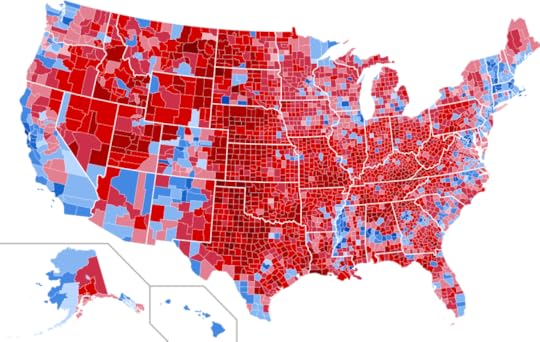 https://en.wikipedia.org/wiki/2020_United_States_presidential_election
https://en.wikipedia.org/wiki/2020_United_States_presidential_electionIf one looks at the electoral map in the United States… boy that is a lot of red. Without any question, spatially, Donald Trump won the 2020 election. When you look more closely though, you’ll see that almost every big city voted for Biden. Logically, one can recognize that about four-fifths of Americans live in urban areas (https://en.wikipedia.org/wiki/Urbanization_in_the_United_States). Not all urbanites vote democrat, and not all rural voters vote republican, but there are certainly strong tendencies in those directions.
Part of the issue with the radicalization of the right-wing is the effect that this split has on different people. For example, if you live in New York or Los Angeles, you are likely to interact (even in times of pandemic) with a large number of diverse people on various spectra (Ethnic, religious, political, etc.). As a result, you are very likely to deal with people whose viewpoints differ from yours. Conversely, take a look at the US heartland (and recognize it isn’t particularly dissimilar politically from many other countries including Canada) and notice that most of those darkest red districts are in rural areas. If you live in a rural area, you probably only interact with a small number of very like-minded people regularly. I live in a city with more than a million people, but it tends to lean right politically. That said, I encounter people who are both fairly extreme (at least compared to me) left and right. I get to “enjoy” the “tempered” arguments regularly. It is exhausting, but at least I get exposed to both viewpoints. (Further: there are never just two viewpoints, but a spectrum of middle-ground that gets ignored scoring political points.)
Consider though, somebody who tends to lean right politically, who is exposed only to news sources Fox or further to the right, that are all reporting Trump’s repeated claims that their landslide election win was stolen by the opposition; who are repeatedly subjected to the same claims on their social media feeds, and then (and here is where Geography comes into play), they go out of their house angrily and talk to their friends and neighbours who are all or almost all of similar mindset and hear that, yeah, we all voted for Trump. This lends credence to the accusation that the election should have been a landslide win. Everybody, or almost everybody that this person hears from, whether on social media, mainstream media, alternative media, in person, or even from the lips of the President of the United States, supports the contention that almost everybody voted for Donald Trump. It is entirely understandable why that person would start to feel like they had been disenfranchised. One doesn’t even need hard evidence when belief and a mob mentality start to take over.
Add to that fire the repeated and unending claims by somebody in a position of authority, occupying a once-respected office, the highest one in the land. It would take quite a lot of nerve to suggest that these people are stupid, for that is not, I believe, at the root of the issue. Unfortunately, the messages they hear from all quarters say the same thing, everybody who doesn’t agree with them are sheep, cowards, and traitors, and that only they have the power to preserve their country from a perceived liberal conspiracy.
 Order now from Amazon.ca
Order now from Amazon.caThose who have read my book, On Swift Wings, will recognize a number of social and political themes. As most of the islands are isolated environments, separated from the outside world, there are numerous examples of the effects that this isolation has on their political and social structures. If one looks closely, starting right at the foreword of the book, you’ll see that I believe that this is a useful thing, to develop disparate and dissenting opinions and ideas. What I perhaps have not elaborated upon to the degree I would now have liked, is how important it is to bring these ideas together in a calm, humble, and respectful manner. I believe that with strong leadership, this is possible. It is possible to understand people and to discuss in a reasonable way the things that we hold to be self-evident and yet others view them completely differently. I hope that in time, and I’m optimistic, that the extreme polarization of our current society will be replaced with acceptance and partnership.
I hope I have not offended anybody unduly. This is a traumatic and challenging time on a number of fronts, and it is my aim, small though its effect may prove to be, to help heal some of these rifts. At the very least, you’ve now read some of my opinions and you are now able to evaluate, whether you agree or disagree, and contribute your own thoughts. I would love to hear what you think in the comments here, on Facebook, Twitter, or LinkedIn.
December 10, 2020
Man Box
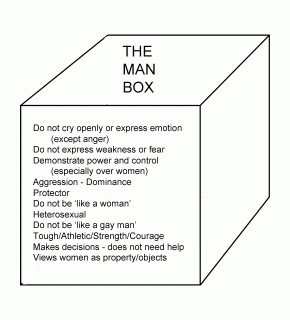
I’m going to take a step outside the book and my writing to make a note about something that I think is really important. Hey, this is my blog, and I can pretty much do whatever I want here, right? In case this looks like an advertisement for my book, I want to note that I only devoted a few sentences to gender equality in the book. I tried to make female characters important, and avoided making them objects, but this really isn’t about the book, and the book isn’t about this.
I’ve been working in the past few months with a women’s group at my company. They are an incredible group of people that are doing their best to help make my company a welcoming, safe, fair, equal, and better place for women. I’ve been attending meetings for several years and this fall I signed on as a director of the Men as Allies program.
The research in this area is incredible. The vast majority of men want to help, for no other reason than it is the right thing to do. Most men want the world to be fair, and would be willing to sacrifice some of their privilege to get there. Privilege, however, is not often visible to the people who have it. We take for granted a number of freedoms of which we are not even aware. This list doesn’t even begin, but think, when was the last time you walked into a meeting and you were the only person of your gender in the room? How often do you get interrupted in meetings? What is the general make-up of your company in terms of gender? I mean if you dig deeper beyond the top line summary of numbers. What if you remove female-dominated departments like human resources from the total? The fact is, despite our best efforts, workplaces in general are not fair and equal. We want them to be, most of us, we are trying to get them there, but they aren’t there yet. I know my company and many others are trying, and that is commendable. I want to help.
I volunteered to be a director because I thought I could use my voice as a man to get the message out about the efforts of this group. I thought they could use me as a megaphone, as a symbol, as an example. I didn’t know exactly what I was going to do, mostly I wanted to be a tool that the fantastic women running this group could use to help advance equality. I knew I would have to do some work, but I didn’t really have a clear picture yet.
I’ve learned a lot.
In the past few months I’ve read hundreds of papers on the subject, watched videos and TED talks, and last week I was allowed to attend a Catalyst conference specifically about Men Advocating Real Change. This conference was nothing like I expected. I thought they would talk mostly about what we can do to help women: Tips and tricks for advancing and correcting the culture at our companies. There was a little bit about that from some excellent leaders at P&G and Chevron, but it was more focused on men. A lot of what they said really hit home for me, and I’m going to make an effort to step out of my “man box.” The biggest thing that I took away is that if men want to help, to truly make a difference, we have to recognize and change ourselves and our own culture.
There were some excellent speakers, one of the subjects was about the “Man Box.” I strongly encourage you to watch it. It is excellent, moving, eye-opening, and beautiful.
Tony Porter – A Call to Men
This is a scary time in which we’re living. Very scary. I’m not ashamed to admit it, I am terrified right now.
I’m scared of Covid-19 – we’re doing everything we can as a family to protect ourselves and our communities, but it is scary as hell.I’m afraid of constant fighting: the way that communication, negotiation, and understanding have been replaced by arguing, name-calling, and echo-chambers. There is common, middle ground.I’m scared of the world that my son and daughter are inherit, in so many ways. Economically, environmentally, socially, etc.I’m scared that I’m not a good enough dad, and that my kids aren’t going to have the best possible life.I’m scared that I could lose my job, and that it’d be hard to find another one.I’m scared of failing to provide for my family the best possible life.I’m scared, for my kids, that something could happen to me
These are just the ones that came to mind. I’m a man, I’m afraid, and that’s ok.
Men:
It is ok to have feelings;It is ok to need connections with people;It is ok to be afraid, sad, happy, worried, angry, etc.;It is ok to be a woman;It is ok to be gay;It is ok to be weak;It is ok to cry;It is ok to follow, or not to dominate others;It is ok to be a man.
You are welcome to disagree with anything that I say. I encourage it wholeheartedly. As with my writing, I only hope to make things better and to encourage meaningful discussion. I’d love to hear your thoughts. What are you scared of?
May your world always grow,
BW
November 24, 2020
Audio Book
One thing that I heard a lot after publishing On Swift Wings was… when will it be available as an Audio Book? My honest answer was that I hadn’t really thought about it. This entire journey has been an organic one. It started with me jotting down some thoughts in response to Gulliver’s Travels, evolved into me writing a bit of a mission statement which became the foreword, ultimately into completing a full-length (maybe more than normal length) action-adventure satirical fantasy novel with publishing, marketing, editing, cover design, and a million other lessons along the way.
Once the book was finished and published, it became clear that many people prefer to consume stories in media other than print. Reading a book requires singular attention and devotion. Many people feel pressure to do more than one thing at a time, and books are something they listen to on their commute, in the car, while exercising, or as a side-activity. It takes a kind of focus to sit down and read a long novel, so many of my friends said that they’d wait until the (unplanned) audio book. Maybe they were playing with me, but my goal is to have as many people read my book as possible, so I did a little exploration down this alley.
I barely knew where to start. Actually, this could be the title of my autobiography. I knew that Amazon had some Audio Book functions, and some of the writing groups that I follow talk about them a bit. I took to Google and found a ACX, Audible’s exchange program for audio books. Basically, you choose one of three options:
You offer narrators a chance to try out for a fixed rate.You offer narrators a chance to try out for a portion of the royalties.A combination of 1 and 2.
I thought this sounded like a pretty good deal, but I did some more research and found that in general the experience on ACX wasn’t that good. Authors felt cheated, narrators felt cheated, no matter how well the book does, somebody feels they didn’t get what they deserve. I don’t like making people feel bad, so I shelved the idea for a while. The idea was still on my mind though, and it kept coming up. Early this year, as Covid forced people inside, I had two choices for what I could do with my writing. I could work on my second book, or I could go deeper into the Audio Book. I started writing the second book, but I haven’t found a voice that I like for it yet. Then I stumbled across a “how-to” series for creating audio books. They gave me a few really good tips, and I got interested in recording my own book.

Everybody hates their own voice, but this series said something that eased my fears a lot. They noted that the voice you hear recorded isn’t what other people hear, it is your brain’s reconstruction comparing your actual voice and the voice you hear ricocheting through your brain. You actually hear twice the difference in a recording because of this effect. Made sense to me, and with the support of a number of friends who assured me that I had a very good voice for narration, I decided to take up the challenge.
I also wanted to record my own voice reading my own book for my kids. My Grampa narrated Winnie the Pooh for us when we were young and it is a treasured possession to always be able to hear his voice when he was younger. I want my children, and hopefully their children to be able to hear my voice as it is now. This was the biggest driver for me to get this done. I hope that my kids are proud of the book that I’ve written, and no matter what happens in the future, they’ll always be able to hear their dad whenever they want.
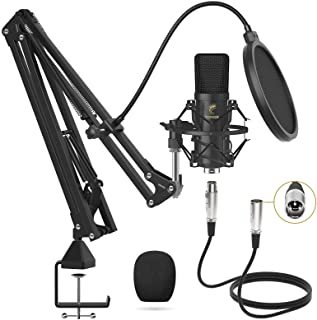
So, I had decided that I wanted to do and narrate an audio book, but I didn’t know anything about narrating an audio book. I didn’t think my crummy headset would do a good job so I researched microphones and was directed towards a cardioid microphone. I bought everything I needed to make my office into a studio. I put up towels and sheets to reduce echo, attached screens to the phone, sealed the room to keep the noise floor down, used a tablet computer that is very quiet, and learned some tricks about narration.
One of the things I was worried about was, how was I going to read 120,000+ words without stumbling a few times. I read half-an-hour or more to my kids every day, children’s books, many that I’ve memorized now, and I still stumble occasionally. Obviously this is where editing comes in, but even then, I figured I had to at least be able to read a full page without faults. Again, a little education came in handy. First, everybody makes mistakes while reading, and it doesn’t have to be misreading a word. Mistakes include breathing errors (like running out of breath halfway through a sentence) or not maintaining a consistent cadence or energy level, tongue clicks or lip smacks, ambient noise like a cell-phone buzzing or the furnace turning on, and of course the obvious mispronunciation of a word, name, or sentence.
[image error] Click Here for Preview
If you’ve read my book, you’ll understand my trepidation. If not, know that I employ a varied and flowery vocabulary, and when narrating, I realized that I didn’t actually know how to pronounce some of the names properly. I also struggled with French words, not because I can’t pronounce them, but because I naturally pronounce them in French, which sounds a little funny in the middle of an English text.
One of the more interesting and useful tips that I learned about narrating: When (not if) you make mistakes, immediately follow them up with a loud “Beep” sound. (Not an expletive, just a loud “beep.”) This way, when you look at the wave-forms during editing, it will be very easy to identify a mistake and really quite easy to edit it out. Another trick that I employed, regarding breathing, was to take a long pause after every sentence to breathe. I would start each sentence with my lungs full of air and ready. It meant that I was full-chested and able to enunciate as well as possible, but I was certainly sore by the end of the narration.
Speaking of sore, reading 120k+ words took around 13 hours of reading at my natural cadence, after editing, this shortened to 10.5 hours. I knew to be aware of the editing process, but even with warning, I didn’t realize how long it would take to edit the work to my desired quality. I estimate that it took roughly 3 hours for each hour of recorded content, so a total of about 30 hours listening to my own voice.
Editing consisted of making pauses between sentences consistent, reducing and removing any background noises, breathing sounds, clicks and smacks, cleaning up subtle mispronunciations, and clipping out incorrect words. Once I was happy with a chapter, having gone through it thoroughly, I exported the file to a high quality MP3. The software I used was Audacity, which was quite powerful, intuitive, and free. There isn’t a single second of the book that I didn’t listen to, review, consider, and optimize. Every pause between sentences was measured and planned to match the tone of the story. When I wrote the story, I accentuated action and tension with shorter words and sentences, the Audio Book features the same attention to detail. When action is happening, pauses are shorter and the book moves more quickly, when in a descriptive period, it slows down with longer pauses and greater verbosity.
Finally, I had to decide how to publish. I had already encountered ACX, but as is typical of Amazon, they encourage exclusivity clauses and generally pay the lowest royalties available. Hearkening to my mission, I wanted the most people possible to read the book, so I wanted to “go wide” as I had with the book itself. After a bunch more researching, I found Findaway Voices. Findaway takes your book and pushes it out, on your behalf, to 43 different retailers including Amazon, Nook, Apple, Google, Chirp, Kobo, Scribd… They take a percentage of my royalties, but again, money isn’t the goal, I want people to read the book and be inspired or consider new ideas. I uploaded all the audio to Findaway, 10.5 hours worth of highly edited narration of On Swift Wings.
It takes time for the audio to be approved and made available on different platforms. The fastest is Author’s Direct, which is hardly surprising, as it is basically my own personal storefront on Findaway. The slowest (and still not available after three weeks) is Audible, though I’m confident that it will eventually be available there if that is your preferred platform.
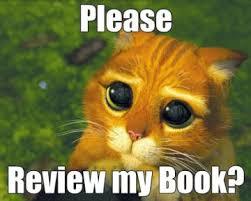
The book is available. Early feedback has been the the quality is good and my voice is clear. I would love to hear more. I would really love to get more formal reviews, especially on Amazon or GoodReads. I don’t know if I can emphasize how important positive reviews are to an author like me. I know you get asked all the time to review products, and it is because it is really important. The only way that I can get word out about my book is if people see at a glance the formal social proof needed to ease their minds.
Please review my book! Please?
November 14, 2020
On Swift Wings – Audio Book Now Available
It actually happened a lot quicker than promised, but the Audio Book version of On Swift Wings is now available at an ever-increasing number of retailers. The quickest off the mark was Authors Direct. The early listeners there have reported that the audio quality is good, so I’m thrilled to spread the word that it is available!
[image error]
Furthermore, as with the book itself, 10% of author royalties will be donated to the Children’s Hospital.
Currently, the Audio Book is available from these fine stores:
AppleAuthors DirectChirpGoogle PlayKobo, WalmartScribd
Click on any one of them to listen to a sample of the audio. I’m very excited to hear what people think! (both of the story and the audio book!) – Reviews are greatly appreciated!
As with the relaunch, I’m going to write a few articles about the process of creating an audio book over the coming weeks. I didn’t expect it to be an easy effort to narrate and edit a full-length novel, but I also didn’t anticipate how much time and energy it would take. I think that you’ll find my experience informative and interesting.
[image error]
[image error]
A reminder as well, in case you weren’t aware (and judging by the view count, you probably weren’t), I’m uploading a chapter of the book to YouTube weekly. You can listen to the On Swift Wings playlist there for free! Don’t forget to Subscribe to get future updates.
[image error]
[image error] Order the book now from Amazon.ca
Hardcover/Paperback/eBook
Thanks everybody for supporting this indie author!
May your world always grow!
Brett M. Wiens



